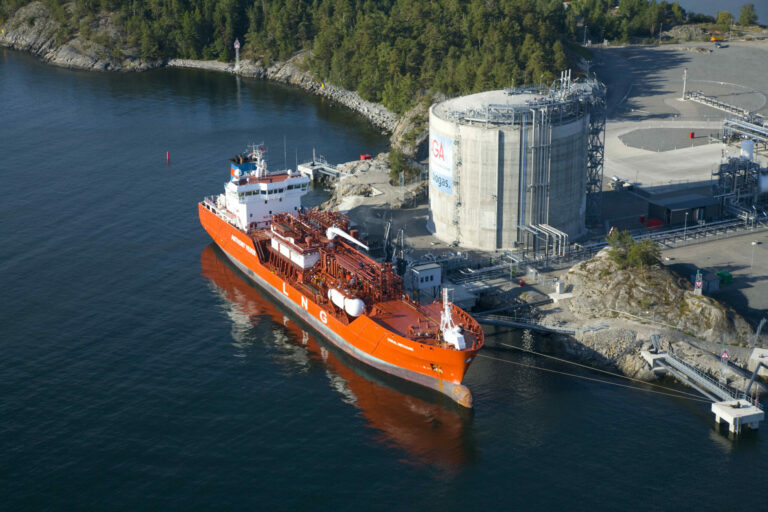The energy transition and the future import of climate-neutral energy sources must be top priorities in the construction of new liquefied natural gas (LNG) terminals, according to a position paper released today by IKEM in response to the German government’s announcement of plans for an LNG Acceleration Act.
‘Even if we want to find a quick replacement for our natural gas imports from Russia, climate change mitigation needs to be at the forefront of these infrastructure projects,’ said IKEM Managing Director Dr Simon Schäfer-Stradowsky. ‘LNG terminals should only be approved if they’ll be ‘H2-ready’, which means that they could be adapted for the import of green ammonia, for example. The drafting notes do not yet include clear enough provisions for this.’
In response to the war in Ukraine, the German government has announced plans to construct two import terminals for LNG and to speed up the necessary approval processes. Based on drafting notes provided by the Federal Ministry of Economics and Climate Protection (BMWK), the planned LNG Acceleration Act will provide exemptions from the obligation to conduct an environmental impact assessment, shorten the timeframe for public participation and simplify compensatory measures for nature conservation.
‘The measures planned according to the drafting aid require special justification. The reference to the tense situation on the energy markets and the economic necessity isn’t a sufficient justification without robust data to substantiate it,’ said Judith Schäfer, head of the Energy Law Department at IKEM. ‘The technical challenges associated with importing green gases via LNG terminals need to be addressed before approval is granted. Only then would there be sufficient justification to accelerate the process, as far as the climate change aspect is concerned.’
According to the statement by the German government, the planned LNG terminals are to be converted for the import of green hydrogen and its derivatives at a later date; according to the drafting notes, operation with natural gas will end no later than 2040. Schäfer-Stradowsky welcomes this approach, but calls for a more ambitious strategy. ‘The latest reports from the Intergovernmental Panel on Climate Change make it clear that we can’t afford to wait to decarbonise,’ he said, ‘so under no circumstances should the time limit on terminal use be abandoned on the way to becoming law. We need to shorten the deadlines for conversion.’




